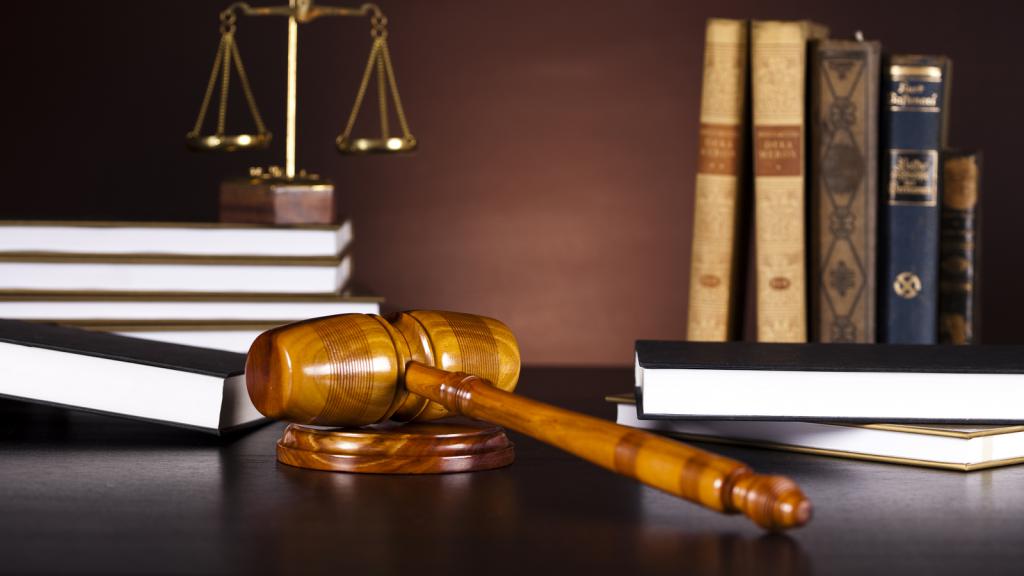If we talk briefly about the legal regime of trade secrets, it should be determined that this concept appeared relatively recently, with the development of entrepreneurial activity. The phrase "trade secret" is widely used in various enterprises and organizations that conduct activities related to profit. So, what does this concept mean, and what is the legal regime for protecting trade secrets? About it further.

General concept
In accordance with the current Russian legislation, a trade secret is any information that allows the person who owns it to significantly increase revenues. This phrase can be used to characterize information regarding the components of certain branded products produced by food industry enterprises, advertising means by which the company organizes an increase in the influx of customers and regular customers, etc. This concept is also widely used in the field of services market.
The holder of information constituting a trade secret has the right to non-disclosure, since it is with its help that an entrepreneur has the opportunity to conduct a profitable business.
Legislative consolidation
Civil law says quite a lot about commercial secrets. The Civil Code of the Russian Federation contains article 139, which discloses not only this, but also the concept of official secrets, the legal regime of which is identical to the one under consideration. In addition, the concept of trade secrets is also found in articles of the Labor Code.
In addition, in the database of regulatory legal acts of Russia there is a law of July 9, 2004, “On Trade Secrets”. It defines the concept and legal regime of trade secrets. In addition, it talks about the rights and obligations of people who own such information, as well as defines legal methods for its protection.
Signs of trade secrets
The concepts of commercial and official secret law also reveal their characteristics. Thus, in order for information to receive secret status, it must possess the main quality: be useful for business development. This information is valuable, as a result of which it cannot be disclosed to third parties, since in the case of general fame it will cease to be really worthwhile. Due to the value of information referred to the system of commercial secrets, access to it is prohibited for third parties - legally it can be obtained only with the permission of its owner. The main way to obtain such information, which is the only one, is considered to be provided on the basis of an agreement with the holder or another type of agreement with him.

Information that cannot be classified as trade secrets
There are some exceptions to the law of trade secrets, as in other industries. The legislator clearly defines those data and indicators that cannot constitute a commercial secret. These, first of all, include data that contain illegal information. Persons engaged in entrepreneurial activities cannot establish an appropriate label for information regarding labor conditions of employees, number of employees, pay systems used at the enterprise, as well as about current income that the entrepreneur has as a result of his work.Facts related to the presence of wage arrears, its size also cannot be hidden under such a heading.
Information regarding environmental pollution by the enterprise also cannot be hidden under the guise of trade secrets. The legal regime of this concept also implies a ban on hiding the list of persons who can perform their actions on behalf of an enterprise, organization or institution without the presence of powers of attorney drawn up in their names.
Unlawful disclosure of trade secrets
The Federal Law "On Commercial Secret" also refers to illegal ways of obtaining information, which is a component of commercial secret. In his articles, all actions that constitute the removal of obstacles established for the preservation of information constituting a commercial secret will be recognized as illegal ways of obtaining such. In addition, all actions to transfer to third parties information legally known that were performed by a person who knows that the information is an object of commercial secret law will be considered as such.

Disclosure Responsibility
Violation of the legal regime for protecting trade secrets, that is, its illegal disclosure, entails a certain liability. Depending on the severity of the damage caused, the guilty person may be assigned administrative, civil, disciplinary or criminal liability.
Labor legislation provides for disciplinary liability for an employee who legally owns sensitive information and discloses it inadvertently. In order for the employer to hold such a person accountable, there must be some evidence that the employee had access to her. An example of such can be an agreement on the prohibition of disclosure of information or a receipt, written by the hand of the same employee, with his signature. In labor law, the disclosure of trade secrets is considered a gross violation of discipline, in this regard, the employee who allowed this should be subjected to serious punishment. Practice shows that in this case, the employer prefers to dismiss such employees. Based on Art. 241 of the Labor Code of the Russian Federation, such an employee may be assigned additional liability in an amount that does not exceed his monthly salary. In addition, at the end of the trial, a decision can be made on the full compensation of material damage to the employer, but such a measure of punishment is applied only if the company suffered serious losses as a result of these actions.
The legislator makes certain amendments regarding the conditions for imposing obligations on the payment of material damage by an employee to an employer. The article of the Federal Law "On Commercial Secrets" states that the employee will not be assigned this type of responsibility if the employer has not taken all the measures necessary to maintain classified information. The same applies if the information was declassified as a result of other persons or force majeure. In addition, employees have the right to appeal the illegality of determining the regime of commercial secrets in the event that the information became known during the performance of labor duties, in which case it will also not be held responsible.
Criminal liability
This type of liability for violation of the legal regime of trade secrets is the most serious. It is applied on the basis of criminal law, which is valid in the territory of the Russian Federation - Art. 183 of the Criminal Code. This article provides for this type of punishment as a fine or imprisonment for a relatively short period of up to 3 years.As for financial punishment, a fine may be imposed in the amount of up to 1 million rubles.
A person may be held criminally liable only if the person deliberately divulged information that constitutes a secret while being an employee of the enterprise or organization under whose jurisdiction it is. It is also considered a criminal act to open to third parties access to a database in which classified information is stored, or to remove obstacles by any other methods that ensure the secrecy and security of information.
A person may be financially punished by paying a fine for acts related to the collection of information representing the secret of the company. These include the hacking of systems, bribery of employees working at the enterprise and knowing information constituting a commercial or official secret, as well as threats directed at them, blackmail and other similar actions.
In order for a person to be prosecuted, certain circumstances are required. Without fail, the injured person must suffer some losses as a result of the actions of the guilty person. An example of this could be damage in the amount of more than 1.5 million rubles, as well as grave consequences that arose as a result of the disclosure of secrets. Also, for the purpose of criminal liability, the presence of mercenary motives for a person who has committed a crime that violates the legal regime of commercial secret.
Legal practice shows that the application of such a measure of criminal punishment for disclosing trade secrets is very rare, basically the court forces the guilty person to pay the injured party a fine in the agreed amount.

Information privacy measures
The Federal Law No. 61 on the legal regime of commercial secrets states that the legislator provides for some methods of protecting confidential information from free disclosure to third parties. On the basis of Article 10 of the Law "On Confidential Information", all those who hold commercial information can determine a separate circle of persons who can receive unhindered access to such information, as well as monitor their use of the information received. All documents that contain information containing trade secrets must bear the corresponding stamp. The same applies to media that have official secrets. The official holder of information must also be indicated on this neck - this can be either an individual or a legal entity (organization, institution or enterprise).
The legislator obliges to regulate all relations that may be formed in connection with the provision or use of information constituting a trade secret through certain legal actions. Examples of such can be writing receipts on non-disclosure of secrecy or the conclusion of agreements of the corresponding content.
At any enterprise or organization in which there is secret information, an account must be entered of persons who have access to it, as well as those who become aware of hidden information. This circle should be seriously limited.
The legal regime of official and commercial secrets in relation to certain information is established only when its holder has taken all measures prescribed by law. First of all, the court turns its attention to how competently the owner organized all the conditions to ensure its safety. If this is not observed during the trial, the protection of the rights of the owner of the information constituting a commercial secret will not be carried out due to the lack of corpus delicti in the act committed by the guilty person.
For private entrepreneurs who do not use hired labor, a slightly different list of measures has been established to ensure the safety of information. These include, first of all, the definition of the circle of information that is considered secret, as well as the grounds on which the disclosure of classified data can be regulated.

Protection of confidentiality of information in labor relations
Any employee who possesses information that has the concept and legal regime of trade secrets must strictly adhere to certain requirements prescribed by Russian law. The essence of such duties is aimed at protecting classified information from disclosure to third parties. After the termination of the employment contract, the employee also has no right to disclose such information - this is also prescribed by law and must be indicated in the receipt and in the contract at the time of its conclusion. In case of violation of such requirements, the owner of commercial information may go to court to protect his infringed rights and to demand compensation for losses incurred as a result of the provision of information to third parties.
After the period of validity of the contract concluded with the person who knows the data having the legal regime of commercial and official secret expires or is terminated legally, the employee is obliged to return all media on which there is classified information. Of course, this applies only to those objects that were in its working use.

Providing hidden information to officials
The list of personal rights of holders of commercial secrets says that this person should not disclose legally hidden "company secrets" without the need and personal discretion. However, the regulatory acts of the Russian Federation say that officials have the right to request the provision of information from a number of trade secrets in certain cases that may arise during the conduct of investigative actions, in the manner of establishing any facts, etc.
At the first request of local executive authorities, investigators, representatives of state bodies or other authorized persons, a person who owns hidden information is required to provide it, moreover, on a free basis.
Any such request by an official must be in writing and certified by signature. The purpose of the claim must be indicated in the text of the document, as well as the legal grounds in connection with which the person must provide classified information. In the event that the requirement was not executed in the proper form, the entrepreneur has the full right to refuse to provide information constituting a commercial secret.
In practice, there are such cases when a person refuses to provide information that is characterized by the legal regime of commercial secrets. In this case, the official has the right to request its disclosure in court.
The representative of the government, who became aware of information representing the commercial secret of an enterprise or organization, is required to ensure its safety by all possible methods. Otherwise, he may be held proportionately liable for its disclosure. He also has no right to independently use the information received for personal and selfish purposes.

Rights of the owner of a secret
The regulatory legal acts of the Russian Federation set forth a specific list of holders of trade secrets. All of them are guaranteed by law at the federal level and, if necessary, can be protected in court.
A person who is the owner of classified information has the right to make changes and amendments to its content if the new information does not contradict the conditions prescribed by law.In addition, he has the right to use such information at his discretion, if these actions also do not contradict the law. He also has the right to provide it to third parties and to demand its safety at the appropriate level. In order to ensure that such actions are performed in the required form, an agreement must be concluded or a receipt must be made for non-disclosure of information. The same applies to state bodies and all officials who, in the course of their activities, gained access to trade secrets, they are also obliged to create conditions for its preservation.
Provided that the right to preserve information of this kind is violated, its legal owner has the opportunity to apply for his protection, which is carried out exclusively in court. Hearings in such cases are always held behind closed doors, without the possibility of access to meetings of third parties as listeners.
